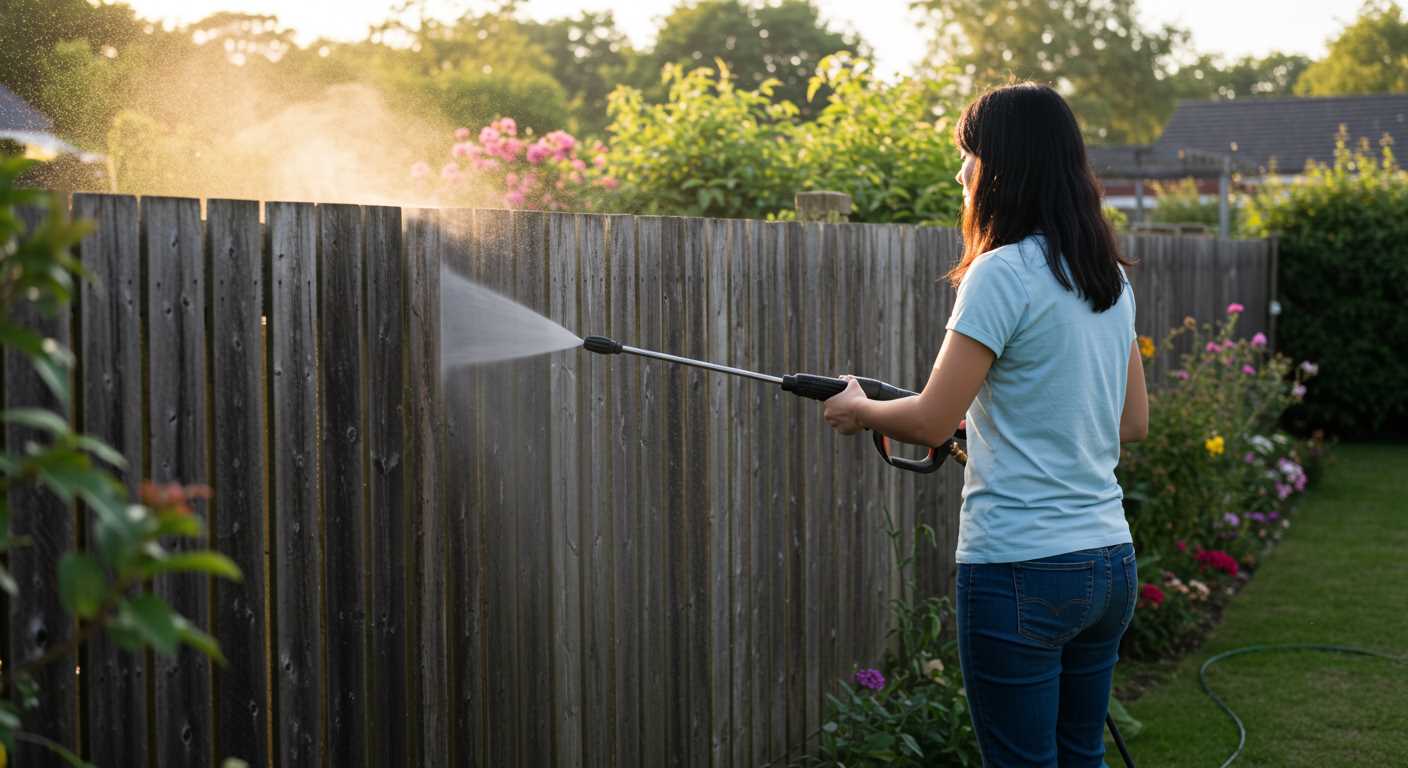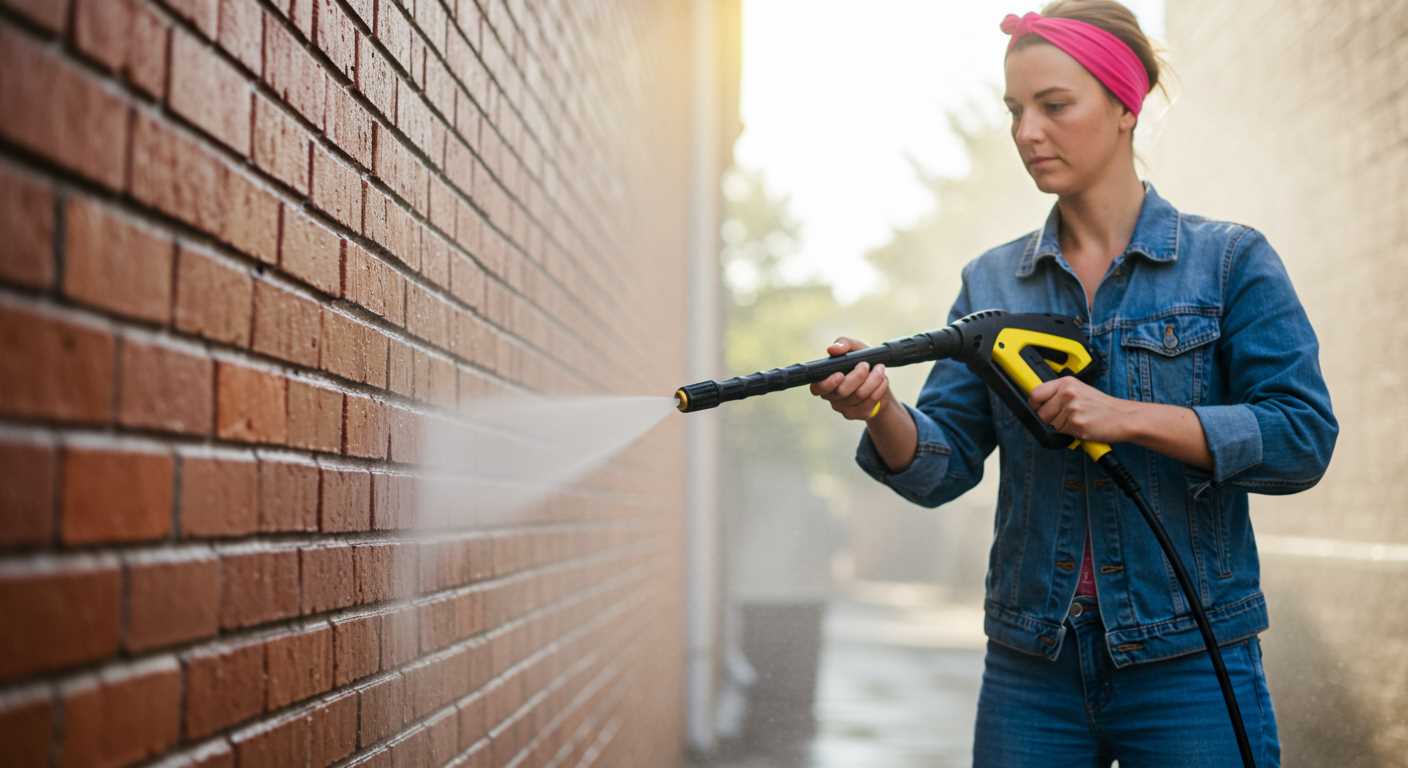


Absolutely, regular maintenance is crucial for the longevity and optimal performance of your high-pressure cleaning unit. From my years as a consultant in the cleaning equipment sector, I can confidently say that neglecting this aspect can lead to decreased efficiency and ultimately costly repairs. A quick check-up can save you time and money in the long run.
During my tenure, I often encountered units that had been left unattended for extended periods. I remember one particular instance when a client brought in a model that had significant build-up in the nozzle and pump. The owner had assumed that if the machine was stored properly, it wouldn’t require any attention. This misconception led to a complete overhaul instead of a simple clean and check.
Ensuring that your equipment is functioning correctly involves more than just cleaning the exterior. Regular inspections of components such as hoses, filters, and seals can prevent minor issues from escalating. A simple replacement of a worn-out seal can make a world of difference in maintaining pressure and flow. I always recommend setting a maintenance schedule tailored to your usage frequency–monthly checks for regular users and seasonal checks for those who use their units less frequently.
Pay attention to the manufacturer’s guidelines as well. They often provide specific recommendations related to maintenance intervals and procedures. Following these can enhance the performance and lifespan of your cleaning device, ensuring it remains a reliable tool in your cleaning arsenal.
Do Karcher Pressure Washers Need Servicing
Regular attention is beneficial. I’ve seen many machines last longer with just a bit of upkeep. From my experience, minor checks can prevent bigger issues down the line. For instance, during a routine inspection, I discovered a simple blockage in the nozzle that could have escalated into a costly repair if ignored.
Consider these key maintenance tasks:
| Task | Frequency | Details |
|---|---|---|
| Check water filters | Monthly | Clean or replace to avoid clogs and maintain optimal flow. |
| Inspect hoses | Monthly | Look for wear and tear; replace any damaged sections to prevent leaks. |
| Clean the spray gun and nozzle | After each use | Ensure no debris is left behind to maintain pressure. |
| Check oil levels (if applicable) | Every few months | Maintain proper oil levels for smooth operation of the motor. |
I’ve often advised users to store their equipment properly, especially during colder months. Freezing temperatures can wreak havoc on internal components. A simple winterisation procedure can save you from future headaches. Just draining any remaining water and storing it in a dry place can make all the difference.
Listening to the machine is also key. Unusual noises or vibrations can signal underlying problems. I recall a time when a friend ignored a subtle knocking sound. It turned out to be a loose component that, if left unattended, could have caused severe damage.
In summary, a proactive approach to maintenance can enhance performance and lifespan. Regular checks, proper storage, and addressing minor issues promptly can save time and money in the long run.
Understanding the Importance of Regular Maintenance
Regular upkeep is paramount for ensuring longevity and optimal performance of your cleaning device. I recall a time when I neglected routine checks on a unit I frequently used for various tasks. After months of heavy usage without any care, it began to show signs of struggle. The motor overheated, and the output pressure dropped significantly, resulting in unsatisfactory cleaning results. This experience taught me that a little attention goes a long way in preserving functionality.
Pay close attention to components such as the hoses and nozzles. A small crack or blockage can severely hinder performance. During one particularly busy season, I noticed a colleague’s equipment was leaking. A simple inspection revealed a damaged hose that could have been easily replaced. Instead, he spent hours dealing with reduced efficiency because he overlooked this minor detail. Regular inspections can prevent such inconveniences.
Cleaning the water inlet filter is another crucial task. I’ve seen many users overlook it, only to face clogs that lead to pump damage. A few minutes spent removing debris can save you from costly repairs down the line. In my experience, performing these small maintenance tasks routinely not only enhances performance but also extends the lifespan of the machine.
Using the right cleaning agents is equally significant. I once tested a variety of detergents on different surfaces, and the results were eye-opening. Some harsh chemicals can corrode internal components, while others could improve cleaning efficiency. Always check the manufacturer’s recommendations before selecting a cleaning solution to avoid damaging your equipment.
Lastly, don’t underestimate the importance of storage. After a day of work, I’ve seen many users simply stow their units away without proper care. Draining the system and storing it in a dry place can prevent freeze damage in colder months. I learned this the hard way; one winter, I had to replace a unit because it cracked due to ice expansion. Simple practices like these can save time and money in the long run.
Identifying Signs Your Equipment Requires Attention
Watch for unusual noises during operation. A grinding or rattling sound often signals internal issues such as worn bearings or loose components. If you hear anything out of the ordinary, it’s wise to investigate further.
Performance Drops
If you notice a significant decrease in cleaning power, it’s time to check the unit. Insufficient water pressure or inconsistent spray patterns can indicate clogged filters or malfunctioning pumps. Regularly inspecting hoses for kinks or leaks is also crucial, as these can severely impact performance.
Fluid Leaks
Any signs of leaks beneath your device should not be ignored. Oil or water pooling can suggest a failing seal or damaged hose. Addressing these leaks early can prevent more extensive and costly repairs down the line.
Keep an eye on the power source as well. If the motor struggles to start or operates erratically, this could indicate electrical issues that require immediate attention. Always ensure connections are secure and free from corrosion.
Lastly, take note of any persistent error codes if your model is equipped with a digital display. These codes are designed to alert you to specific problems, and consulting the manual can provide guidance on necessary actions.
By staying vigilant for these signs, you can maintain optimal performance and extend the lifespan of your equipment.
Step-by-Step Guide to Basic Servicing Tasks
Start with disconnecting the unit from the power supply and water source. Safety first!
1. Cleaning the Filter
Regularly inspect and clean the water filter to prevent debris from clogging the system.
- Locate the filter, usually found at the water inlet.
- Remove it carefully, rinsing it under running water.
- Inspect for damage; replace if necessary.
2. Checking the Hose and Connections
Examine the hose for any signs of wear or damage.
- Look for cracks or leaks along the length of the hose.
- Ensure all connections are tight and free from corrosion.
- Replace the hose if it’s compromised.
3. Inspecting the Nozzle
A clogged nozzle can greatly affect performance.
- Remove the nozzle and check for blockages.
- Soak in warm soapy water if necessary, then rinse thoroughly.
- Use a pin to clear any stubborn debris.
4. Checking Oil Levels (if applicable)
For models with a motor, checking the oil level is crucial.
- Locate the oil reservoir; check the level using the dipstick.
- Top up with the recommended oil type if levels are low.
5. Inspecting the Power Cord
Ensure the power cord is intact without any frays or damage.
- Look for signs of wear along the entire length of the cord.
- Replace the cord if there are any concerns about safety.
By following these steps, you can maintain your equipment’s performance and longevity. Remember, a little attention goes a long way in keeping your tools in top shape.
Common Issues That May Arise Without Maintenance
Ignoring regular upkeep can lead to significant problems. One common issue I’ve encountered is reduced water pressure. Over time, debris can accumulate in the inlet filter or hose, leading to blockages. This results in a feeble stream that won’t effectively clean surfaces. I recall a friend of mine who struggled with this for months before finally inspecting the filter. A simple clean restored the pressure to optimal levels.
Pump Failures
Pump failures are another frequent consequence of neglect. Without regular checks, oil levels can drop, causing the pump to run dry and fail. I once had a client who delayed oil changes, thinking it was an unnecessary expense. Eventually, the pump seized, leading to a costly replacement. Regular checks can prevent such mishaps and extend the life of the equipment.
Hose Wear and Tear
Worn-out hoses can develop leaks if not inspected regularly. I’ve seen hoses that looked fine on the outside but had internal damage, leading to frustrating water loss during use. A quick visual check and replacement when needed can save time and enhance performance. Just a couple of minutes of inspection can prevent a day’s worth of headaches.
Recommended Frequency for Professional Servicing
I recommend scheduling a professional check-up for your cleaning equipment at least once a year. This ensures that all components are functioning optimally and any wear and tear is addressed before it escalates into a larger issue.
Additional Considerations
- If you use your equipment frequently, consider a biannual inspection.
- For seasonal users, a thorough inspection before and after the usage period can be beneficial.
- Always consult the manufacturer’s guidelines for specific recommendations related to your model.
During my time as a consultant, I noticed that machines subjected to heavy use could develop issues that weren’t immediately apparent. For instance, I once encountered a unit that seemed fine but had a hidden blockage causing overheating. A timely inspection could have prevented extensive repairs.
Maintenance Between Professional Visits
- Regularly check hoses for leaks or cracks.
- Inspect the nozzle for clogs and clean as necessary.
- Ensure that the filter is free from debris to maintain flow efficiency.
Keeping an eye on these elements makes a significant difference in performance. I often recommend pairing your maintenance routine with other cleaning tasks, such as how to clean sash windows the ultimate guide for sparkling windows, to streamline your efforts.
By adhering to these guidelines, you can prolong the lifespan of your equipment and ensure it operates at peak performance when you need it most.
Cost Considerations for Maintaining Your Pressure Washer
Regular upkeep can save you significant expenses in the long run. From personal experience, neglecting maintenance can lead to costly repairs or even the need for a complete replacement. It’s wise to assess the financial implications of routine care versus unexpected breakdowns.
When evaluating costs, consider the price of replacement parts. For example, a worn-out pump or damaged hose can set you back considerably. Additionally, the investment in cleaning agents and lubricants, while seemingly minor, accumulates over time. A straightforward annual check-up by a professional, though it incurs an upfront fee, can prevent larger issues that might arise from neglect.
Another element to factor in is the potential time savings. A well-maintained unit operates more efficiently, cutting down the time spent on tasks. This efficiency can translate into savings on your water bill, especially if you’re using it frequently for large cleaning projects.
Don’t overlook the value of your equipment. If you’ve invested in a quality model, maintaining its functionality protects that investment. For those considering alternatives, like the pressure washer from bucket, think about how much longer your primary unit could last with proper care.
Ultimately, weigh the cost of routine maintenance against the risk of more significant expenses down the line. A little effort and investment can keep your equipment running smoothly and save you money in the long haul.





.jpg)


